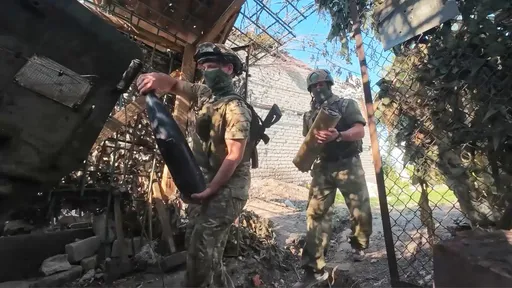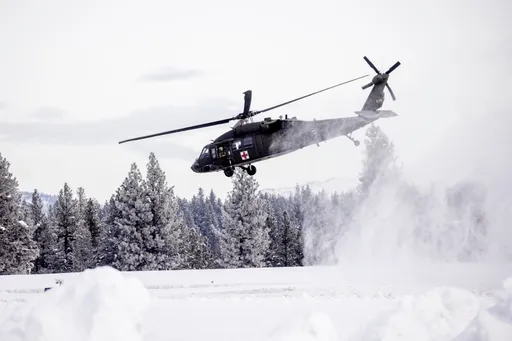“Israel digs its own grave”. The hashtag trended on Twitter in Lebanon last night, cocking a snook at the southern neighbour’s latest security announcement. On Hezbollah-affiliated messaging groups, along with colour-saturated pictures of anonymous fighters, the words were equally as bold: “We will cross over”. The messages were sent as a way to say: you will not harm us, we are still here, and we are ready to win.
The less-than-subtle messaging was in response to Israel announcing Operation Northern Shield to “expose and destroy” tunnels dug by Hezbollah between Lebanon and Israel.
Israel believes Hezbollah has dug the tunnels - over an unspecified time period - to facilitate cross-border attacks. Yesterday Israeli Prime Minister Benjamin Netanyahu described the passages as an “unacceptable act of wanton aggression” in a speech at the Defense Ministry in Tel Aviv. He said he held the government in Beirut accountable for all “terror activity” stemming from Lebanon against Israel, which along with the US and some Gulf countries considers Hezbollah a terrorist organisation.
The operation will likely further tensions between Israel and the Iran-backed political group and militia, who fought a month-long war in 2006, leaving more than 1,100 people dead.
Israeli authorities have been keen to emphasise the importance of Operation Northern Shield, which they say will take place entirely within Israeli territory. But officials have given scant detail on the scope of the intelligence they hold. The Israel Defence Forces (IDF) have not said if they know exactly how many tunnels exist, or how long they expect destroying them to take.
Launching the operation yesterday, the IDF released a video showing what it said was “a Hezbollah operative” inside a tunnel leading from the Lebanese border village of Kafr Kela to Israel. The footage shows a man approaching the camera before an explosion sees him retreat.
Analysts have taken a more cautious tone, pointing out that the identity of the man in the video is not clear and that the tunnel shown was very likely not just discovered.
“It could be Hezbollah checking on its tunnels, but it could just be two curious guys who decided to go and have look at what’s going on,” David Daoud, Lebanon and Hezbollah research analyst at United Against Nuclear Iran, told TRT World.
“I don’t think they [the Israelis] discovered it today. There is a propaganda dimension to this war. Hezbollah plays it much better. The Israelis occasionally know how to make something look good, and this is ‘Oh, look what we found.’ They’ve probably been aware of this tunnel for some time - they probably have a map already laying this out. I doubt the IDF is going into this blind.”
It also remains unclear exactly how the IDF will destroy the tunnels, although Daoud said concrete filling and detonations on the Israeli side were possible options. Israeli authorities moved heavy machinery into place yesterday in apparent preparation for tunnel dismantling.
Operation Northern Shield comes after Hezbollah has strengthened its capabilities fighting in Syria. Thousands of its men have fought to support Assad regime, gaining battlefield experience, training other militia and securing weapons supply lines. In September, Hezbollah leader Hassan Nasrallah said his group had "highly accurate missiles”.
Israel - which has targeted Hezbollah in Syria - believes the group now has an arsenal of more than 100,000 rockets and missiles - quantities that would likely overwhelm its defence systems.
The latest move by Israel comes on the heels of other measures to try to thwart Hezbollah, and can be seen in the context of shoring up the border with Lebanon, which has never been recognised internationally.
In September, Israel continued work on a 130km wall along the frontier, which it expects to be complete in two years’ time. The steel and mesh structure is another attempt to stop Hezbollah entering Israel. In the same month, IDF soldiers carried out a large-scale training exercise to simulate war with the Lebanese group.
Beirut has seemingly remained calm over Operation Northern Shield. Lebanon’s Army put out statements reporting the situation in the country’s south as “calm and stable”, excluding the activity across the border from Kafr Kela. UNIFIL, the United Nations force in south Lebanon, said peacekeepers have “further increased their patrolling along the Blue Line, together with the Lebanese Armed Forces, to maintain the overall stability and avoid misunderstandings that could lead to any escalation.”
Officially, Hezbollah has remained silent on the operation launched yesterday - a media representative told TRT World that the group was not commenting at present. But an affiliated news outlet yesterday posted close-up images of Israeli personnel photographed from across the border. “The enemy mobilised a force of 12 military vehicles and a number of other drilling and bulldozers”, said a text accompanying the pictures on the Central Media website.
The messaging was similar to that of the hashtags shared by pro-Hezbollah social media users: we know what you are doing and are watching closely.
For Israel, the timing of the operation launch likely has more to do with domestic politics than authorities expecting an imminent Hezbollah assault.
On Sunday, Israeli police recommended indicting Netanyahu and his wife for bribery - an accusation the Prime Minister rejects - and last month Defense Minister Avigdor Lieberman resigned over a disagreement on a ceasefire deal in Gaza.
Operation Northern Shield is part of Netanyahu’s attempts to portray himself as Mr Security and to bolster his reputation domestically, according to Daoud.
“Even calling it an ‘operation’ - this is an Israeli non-combat action, entirely within Israeli territory. This isn’t an operation but calling it an operation gives it a certain aura”, Daoud said. “This is Netanyahu saying, ‘I’m still relevant, you still need me, don’t collapse the government. I’m delivering on what I promised a few weeks ago.’ “It’s not a purely theatrical performance - there is obviously a security and military dimension - but the timing and the optics are meant to serve Bibi’s [Netanyahu’s] domestic concerns.”























